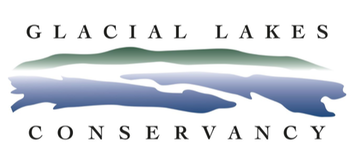|
|
Grasshopper Hill
|
Property story
The Fischer family owned Fischer Farm for many years and was a major landowner of the southern Elkhart Lake landscape. A number of native and farming artifacts have been gifted to Henshel’s Museum. The Fischer homestead is located southwest of the site, but is not included within the Grasshopper Hill Preserve. The hilltop was used for grazing in the past, which accounts for the remnants of barbed wire fencing that remain. Heirs have kept the Fischer Farm along with a small shoreline lot along Elkhart Lake and use an unimproved farm lane as pedestrian and golf cart access
The hill has also been a popular local hiking site for viewing the lake and sunsets. It gained its name for the large number of grasshoppers there when it was open grazing land. Local residents recount stories from childhood expeditions to the top of the hill, for picnics, gatherings and celebrations that included unauthorized campfires and camping. The old corn crib was named “Indian Village” years ago by the local children to match their stories of tribal communities from the past. Current land uses include cropland and passive restoration of natural communities.
The Grasshopper Hill Preserve is a unique cultural and geological relic with an essential ecological function within the northeastern Wisconsin and the Elkhart Lake watershed. The property boasts a glacial kame feature, which allows for beautiful vistas of Elkhart Lake and the surrounding agricultural and forested landscapes. This hill has been a landmark for local lake residents for many generations. The natural communities on Grasshopper Hill have evolved from grazing and primarily agricultural use to a diversity of southern dry hardwood forest, southern dry mesic forest, and dry prairie habitats. Disturbed areas are slowly regenerating with both native and non-native Wisconsin plants common within the Elkhart Lake watershed. Grasshopper Hill provides a permanent home and/or peaceful resting place for many wildlife species while providing a vital connectivity between the Kettle Moraine State Forest and Elkhart Lake.
In accordance with Glacial Lakes Conservancy’s mission, Grasshopper Hill will be managed to preserve natural open space for plant and animal habitat and limited passive recreation for the neighborhood. GLC intends to protect the natural ecological values of Grasshopper Hill by allowing natural processes to continue, limiting use to that which is compatible with natural area designation, restoring disturbed habitats while retaining needed paths and preventing the establishment of invasive species on site.
Personal Perspective
by Communications Intern Marian Cramer
If you’re looking for a classic hike through some of the beautiful kettle moraines that Wisconsin is known for, Grasshopper Hill is the perfect spot. Just the entrance will leave you breathless with the sight of a sloping trail through birch and maple trees. The land dips off into steep slants on either side of the trail, leaving you to imagine the great glaciers that formed this sight. Leaves and maple helicopters drift down like snow until the trail turns a corner and you are transported into a prairie atmosphere. There is the scent of dry grass and sweet flowers. Fat bumblebees replace the falling leaves, floating through the air. An old wooden bench sits around the corner, waiting for the next traveler to sit and admire its land.
Later, the trail takes a steep upwards slant, and now you are in the thick of it. Leaves brush your ankles as you take deep breaths of the warm air. This is the most difficult part of the hike, but the end is the most rewarding as you emerge at the top. Standing amongst pine trees at the top of a hill overlooking a red brown field, you might think how perfect the hill would be for sledding in the cold Wisconsin winters.
If you walk down the hill to the prairie, you’ll hear the crunch of yellow seeds under your feet, and hear the chirping of birds from the forest to your right. The sun on your back will make you think about the farmers who donated this land. How they trusted Glacial Lakes to take care of and restore their property where countless memories have been created and will no doubt continue to be created for generations to come. And now, you are a part of those memories.
The hill has also been a popular local hiking site for viewing the lake and sunsets. It gained its name for the large number of grasshoppers there when it was open grazing land. Local residents recount stories from childhood expeditions to the top of the hill, for picnics, gatherings and celebrations that included unauthorized campfires and camping. The old corn crib was named “Indian Village” years ago by the local children to match their stories of tribal communities from the past. Current land uses include cropland and passive restoration of natural communities.
The Grasshopper Hill Preserve is a unique cultural and geological relic with an essential ecological function within the northeastern Wisconsin and the Elkhart Lake watershed. The property boasts a glacial kame feature, which allows for beautiful vistas of Elkhart Lake and the surrounding agricultural and forested landscapes. This hill has been a landmark for local lake residents for many generations. The natural communities on Grasshopper Hill have evolved from grazing and primarily agricultural use to a diversity of southern dry hardwood forest, southern dry mesic forest, and dry prairie habitats. Disturbed areas are slowly regenerating with both native and non-native Wisconsin plants common within the Elkhart Lake watershed. Grasshopper Hill provides a permanent home and/or peaceful resting place for many wildlife species while providing a vital connectivity between the Kettle Moraine State Forest and Elkhart Lake.
In accordance with Glacial Lakes Conservancy’s mission, Grasshopper Hill will be managed to preserve natural open space for plant and animal habitat and limited passive recreation for the neighborhood. GLC intends to protect the natural ecological values of Grasshopper Hill by allowing natural processes to continue, limiting use to that which is compatible with natural area designation, restoring disturbed habitats while retaining needed paths and preventing the establishment of invasive species on site.
Personal Perspective
by Communications Intern Marian Cramer
If you’re looking for a classic hike through some of the beautiful kettle moraines that Wisconsin is known for, Grasshopper Hill is the perfect spot. Just the entrance will leave you breathless with the sight of a sloping trail through birch and maple trees. The land dips off into steep slants on either side of the trail, leaving you to imagine the great glaciers that formed this sight. Leaves and maple helicopters drift down like snow until the trail turns a corner and you are transported into a prairie atmosphere. There is the scent of dry grass and sweet flowers. Fat bumblebees replace the falling leaves, floating through the air. An old wooden bench sits around the corner, waiting for the next traveler to sit and admire its land.
Later, the trail takes a steep upwards slant, and now you are in the thick of it. Leaves brush your ankles as you take deep breaths of the warm air. This is the most difficult part of the hike, but the end is the most rewarding as you emerge at the top. Standing amongst pine trees at the top of a hill overlooking a red brown field, you might think how perfect the hill would be for sledding in the cold Wisconsin winters.
If you walk down the hill to the prairie, you’ll hear the crunch of yellow seeds under your feet, and hear the chirping of birds from the forest to your right. The sun on your back will make you think about the farmers who donated this land. How they trusted Glacial Lakes to take care of and restore their property where countless memories have been created and will no doubt continue to be created for generations to come. And now, you are a part of those memories.

